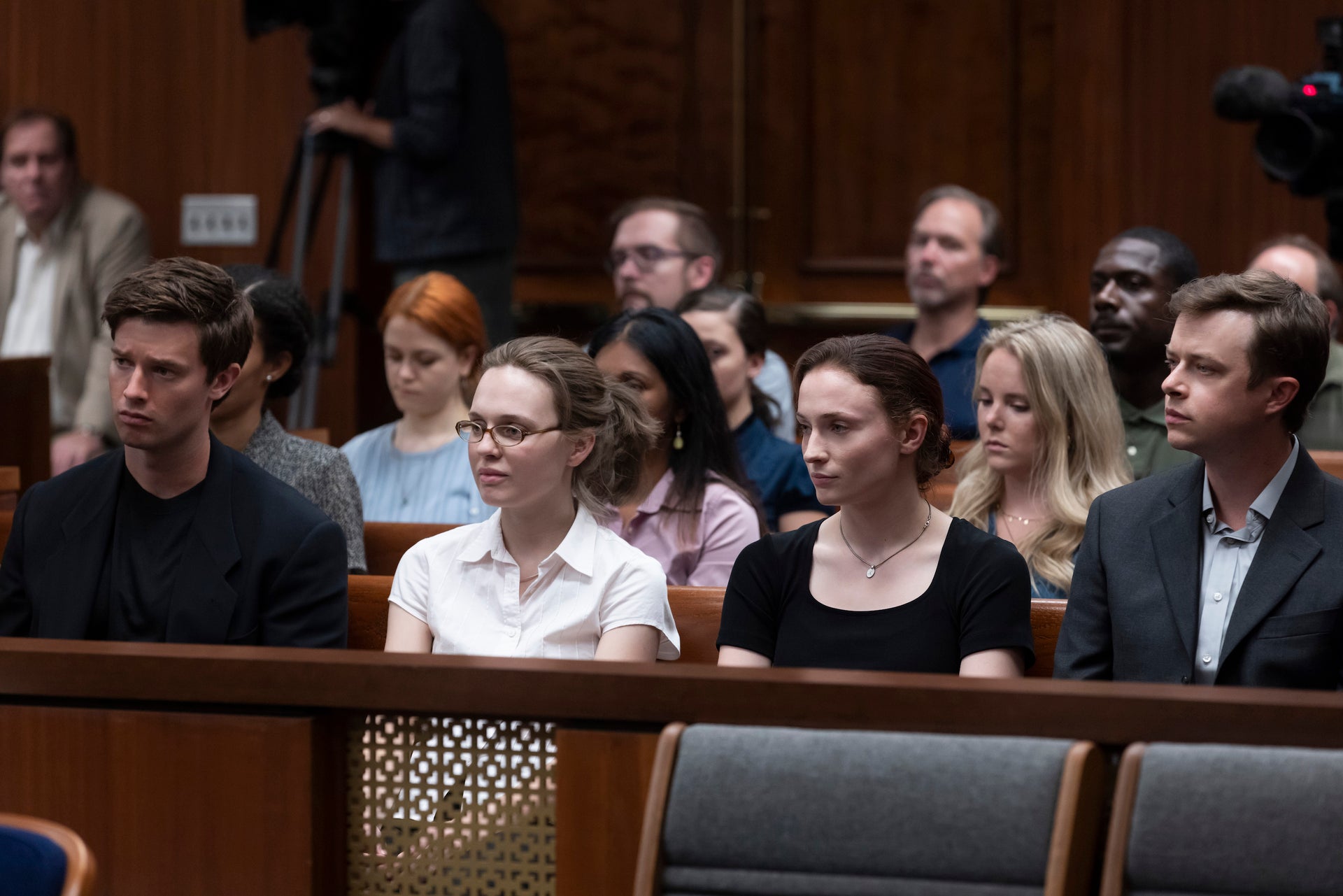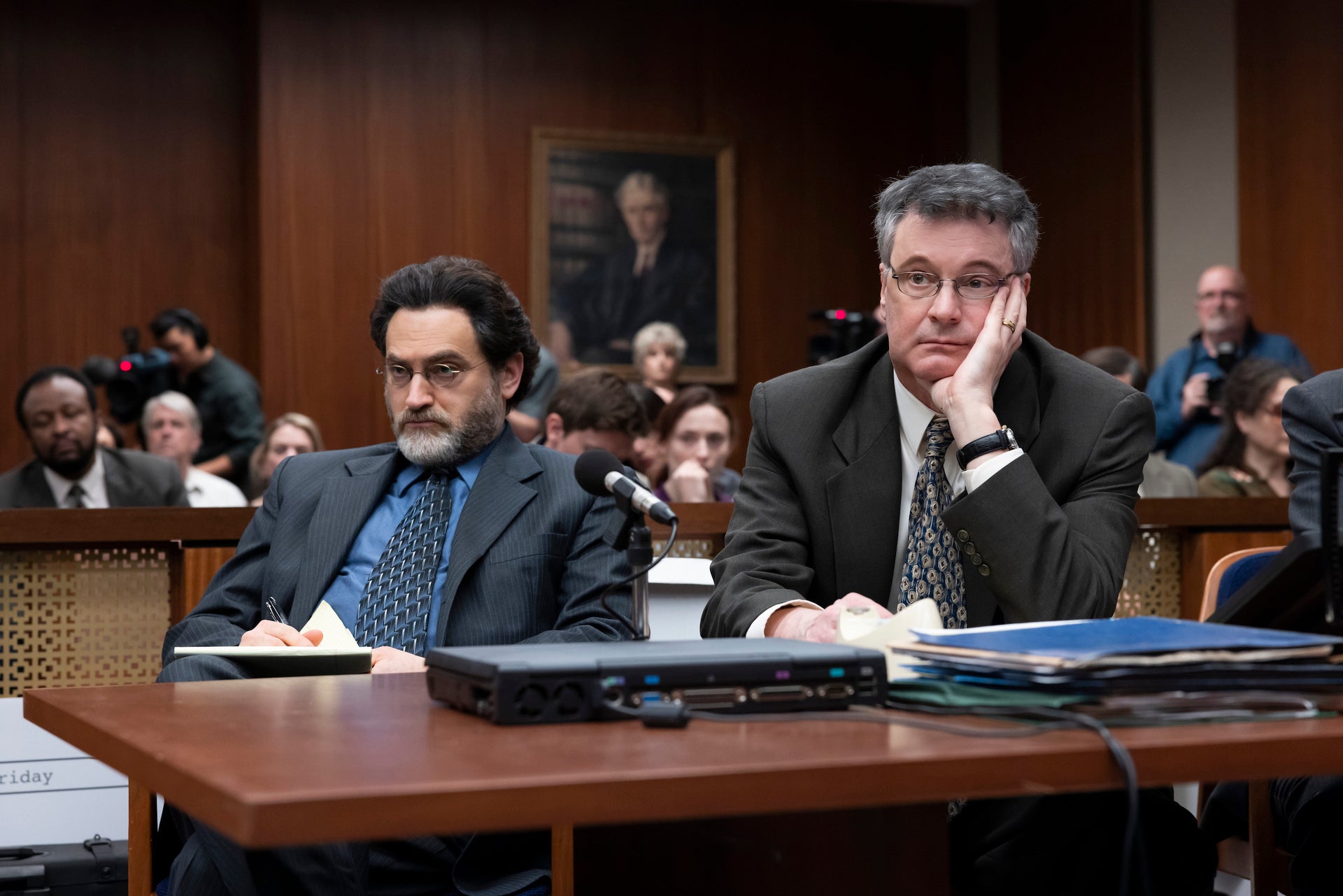The Staircase, episode 4 recap: What is justice?
Is a trial simply two sides competing to tell a better story, or does it uncover the truth?

Your support helps us to tell the story
From reproductive rights to climate change to Big Tech, The Independent is on the ground when the story is developing. Whether it's investigating the financials of Elon Musk's pro-Trump PAC or producing our latest documentary, 'The A Word', which shines a light on the American women fighting for reproductive rights, we know how important it is to parse out the facts from the messaging.
At such a critical moment in US history, we need reporters on the ground. Your donation allows us to keep sending journalists to speak to both sides of the story.
The Independent is trusted by Americans across the entire political spectrum. And unlike many other quality news outlets, we choose not to lock Americans out of our reporting and analysis with paywalls. We believe quality journalism should be available to everyone, paid for by those who can afford it.
Your support makes all the difference.Did Mike Peterson do it? The Staircase grapples with a question that it can’t answer, depriving us of true crime’s most pleasurable cheap thrill. Is there any better sensation for the armchair sleuth than fingering the killer before it’s completely obvious?
Instead, we get philosophical riddles about knowledge, memory, and justice. Like a wily, overpriced analyst, The Staircase turns its central question on the viewer. “Do you really think the point of a trial is the truth?” the show would like to know.
The new Mrs Michael Peterson
Before we learn Mike’s fate at trial, we get a meditation on justice from Sophie, the wife he married in 2017. Played by Juliette Binoche with a caginess to rival Mike’s, she shies even from documentarian Jean’s softball questions, like how she met her husband. We eventually learn that she’d been getting to know Mike (Colin Firth) from the very footage that Jean had been sending back to Paris. It turns out Sophie was an editor on Jean’s original documentary, The Staircase.
“What is justice?” Sophie asks. “A trial is simply two sides competing to tell a better story and 12 jurors declare one of the stories the winner and that story becomes justice.” It’s the closest the series has come to announcing its own verdict on the US trial system but it seems to apply to Jean’s project as much as what’s happening in court. The lines of testimony that Jean includes, and the reaction shots that Sophie selects, themselves tell a story. The documentary is a trial of sorts, its viewers the jury.
The prosecution presents its case
The series adroitly dispenses with the trial in one episode all the while threading a tricky TV needle. It resists the temptation to glamourise court by depicting it as a precisely executed if contentious ballet, but doesn’t belabour us with the slow roll of hundreds of exhibits to the point of boredom. It pauses where it counts, like Kathleen’s sister’s damning testimony that she has “no idea” who the real Michael Peterson is – a soundbite so TV-ready it’s sure to echo in jurors’ ears.
Lawyer David’s (Michael Stuhlbarg) poised cross examination of forensic pathologist Deborah Radisch (Scandal’s Susan Pourfar) is especially compelling. He demonstrates that the odds of someone succumbing to blunt force trauma without suffering a skull fracture are so infinitesimal that it hasn’t been heard of in a South Carolina court proceeding for over 10 years, at least according to the testimony of Radisch’s fellow medical examiners.
Move, countermove. Attack, retreat. Perhaps Sophie was right to say that what happens at court isn’t justice, but “a game that shapes the outcome of a man’s life”.
The trial within the trial
Peterson Family solidarity begins to wilt as the defence team awaits their chance to call witnesses. Martha and Margie (Odessa Young and Sophie Turner) white-knuckle through the prosecution’s presentation of Kathleen’s horrific autopsy images, after being pressured not to skip even one day of court. Meanwhile, the exhumed body of the girls’ biological mother, Elizabeth, is inspected by Dr Radisch, the same medical examiner who David pummelled on the stand – and the same one who, in episode one, was encouraged to add blunt force trauma to Kathleen’s autopsy report. Surprise! The embarrassed Dr Radisch finds lacerations on Elizabeth’s head consistent with Kathleen’s, and no evidence of aneurysm, the cause of death listed on German records.

The prosecution then calls the girls’ old nanny from Germany to the stand, a woman who says she loved them before they can even remember. She’s a totally dubious witness who claims her accounts of Elizabeth’s death aren’t memories, but “flashbacks” shaken loose by watching Kathleen’s case unfold on TV. But she plants the seed that Mike was too strict with his sons, and that she worried about him adopting Martha and Margie. The idea that Mike is The Staircase Killer, who comes out of hiding every 20 years to push a single woman down the stairs, is preposterous, but the harm of her testimony is clear. Even if he’s not a murderer, the girls aren’t so different than Kathleen’s sister now – less and less sure of who their father really is.
The defence rests… shakily
Banished Clayton (Dane DeHaan) returns to Durham to ride out the rest of the trial in the trenches with his siblings and mother, Patty (Trini Alvarado), who lingers in the background of the episode, occasionally interjecting one-liners. For instance, when Clayton finds the missing blowpoke – the prosecution’s hypothetical murder weapon – the defence briefly entertains the catastrophic idea of putting him on the stand. Clayton struggles in a practice cross-examination – and who wouldn’t? He has to answer for multiple DUIs, a four-year prison sentence for planting pipe bombs around the Duke campus, and, as recently last year, his girlfriend called the cops when he shoved her in a fight. But from the sidelines, Patty supportively offers that he also has two masters degrees.
The defence’s best witness is their forensic expert, who convincingly argues that the blood splatter at the crime scene is more consistent with the chaos of coughing than a beating. Hovering over the proceedings is the threat that Mike will testify, an idea that Mike and only Mike seems to support. He wants to explain how much he adored Kathleen. Ultimately, he accepts that he’s more of a liability if, in addition to his love, he’s forced to testify about his porn cache and the Purple Heart that never was.
The jury reaches its verdict
Kathleen’s reputation takes a few dings in this episode. Clayton reveals she started seeing Mike when he was still married to Patty; there are more scenes of her drinking wine and being plied with wine. The series appears to be creeping towards a verdict that the mother of five was more complicated than she seems.

In court, the closing statements are underwhelming. Parker Posey is almost unrecognisable under raccoon eyeshadow, her distinctive uptalk flattened by her broad Southern accent. Her assistant DA Freda is laser-focused on imploring the jury to be offended by Mike’s bisexuality. David, for the defence, seems so cool and methodical by comparison. The murder weapon is missing, he says. The motive is built on the prosecutions’ own prejudices – or at least the ones it hopes the jury harbours.
While they deliberate, Toni Collette’s Kathleen is revived so that we can see one more take of the last night of her life (Prosecutor’s Version). What if, instead of heading to bed, Kathleen snooped around her husband’s email? What if she waited for him in the kitchen, trying to decide what she would say? It doesn’t feel impossible, but we’ve seen the defence’s version so many times that it feels like make-believe.
But, then again, the nanny did say she was worried about Mike. And his son, Clayton, has a temper. In this version of events, Mike responds badly to Kathleen’s confrontation. He gets twitchy and defensive. He tells Kathleen the porn is research for a novel. “You don’t get to Michael Peterson your way out of this,” she tells him, an echo of what his brother Bill told him weeks ago.
What if she calls him names? What if that angry glint in his eye consumes him? What if he pushes her? What if he throttles her? What if, by the time he realises what he’s done, it’s too late to help her? It’s the most awful of these flashbacks to watch. Kathleen flails and seizes until she expires.
Mike is found guilty at the trial, because 12 jurors found this particular series of what-ifs to be the most persuasive. The sentence is as bad as they get: life imprisonment with no chance of parole. We know it doesn’t hold – we’ve seen glimpses of Mike outside of prison – but the jury can’t.
We’re left with Sophie’s questions echoing across the episode: What if this is justice?
Join our commenting forum
Join thought-provoking conversations, follow other Independent readers and see their replies
Comments